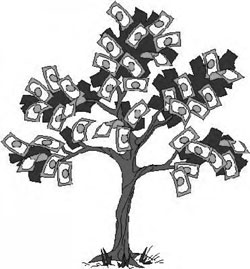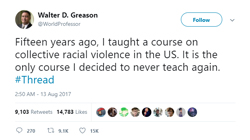Governor Chris Christie’s vetoed the minimum wage bill that came from the Democrats in the Assembly and Senate. Minimum wage in New Jersey was set at $7.25 in July 2009. The bill that Governor Christie vetoed would have raised minimum wage to $8.50 and would have allowed raises as the inflation in the state went up. Governor Christie vetoed this proposition and suggested that the dollar raise be implemented over the course of three years according to “Christie vetoes Minimum-Wage Hike” in The Star Ledger.
For the past four years, politicians and media outlets have not been shy about telling society that the United States is in a financial crisis. College students, who sometimes work seasonal or weekends only, who pay college tuition all on their own, and earn minimum wage, do not need to be told that we are in financial crisis. One needs only to check the online bank statement to know that.
So, here’s the question that we need to asked ourselves: would raising the minimum wage in this state really hurt the economy? And the answer is: it depends on who you ask.
Professor John Buzza, of the Business Department said, “I think it will impact the economy, in that small business employee and employees who work for a large company (like Wal-Mart) are minimum wage earners. The general public will pay for the increase in their income. If minimum wage is raised, companies could cut jobs. It’s a multitude effect. The premise is good, but we need to fix some of the other problems in this state before we address minimum wage.”
According to a recent article published by USA Today: College, there is a benefit to raising the minimum wage. More money in the “Pockets of low-skilled workers” means higher consumer spending. What that means is simple: if you have more money, you’re more likely to buy that new iPod, and buying that new iPod stimulates the stock market, which helps the economy bounce back.
“That’s great!” may be what you are thinking right now. Your next thought is this, “But I’m graduating soon, this doesn’t affect me.” And while that may be true for you, there are some people who need that bump in pay.
Even though $8.50 does not sound like a lot of money, consider this: a person, earning minimum wage ($7.25), who works 40 hour weeks for 52 weeks only earns $15,080.00 a year. The poverty line for the nation is set at $14,570.00 per year. That means that a single parent working to support a child is hovering just above the poverty line, and therefore does not qualify for support from the government, like food.
That extra dollar is looking pretty good now, huh?
Democrats in the state legislature have said that they will send the bill to the people of New Jersey. They want to put the bill on the ballot for the upcoming election for Governor according to “Christie Vetoes Minimum- Wage Hike” from The Star Ledger. That means that if you voted in the Presidential election, you have another chance to cast your ballot and your opinion.
“I think that in New Jersey, it might be difficult to pass, but I think it stands a better chance of getting passed than say, gay marriage or marijuana,” said Chris Down, a senior communication major.
Ashley Pacifico, a junior communication major said, “I do care if this bill gets passed because I feel like products are getting more expensive and the necessities are becoming a burden for some people to buy. A little extra money can go a long way.”
Buzza said, “I think it’s a good idea to let the state decide as long as voters are informed. But that’s always the question, isn’t it? Hear both sides of the fence before you decide.” The race for Governor of New Jersey has begun. The decision lies with the voter.
So the real question for you to answer is this: how much does this issue mean to you? Are you willing to say yes to an extra dollar in the pocket of those who need it the most? Or is the status quo working for you?
IMAGE TAKEN from www. itstyle.info


